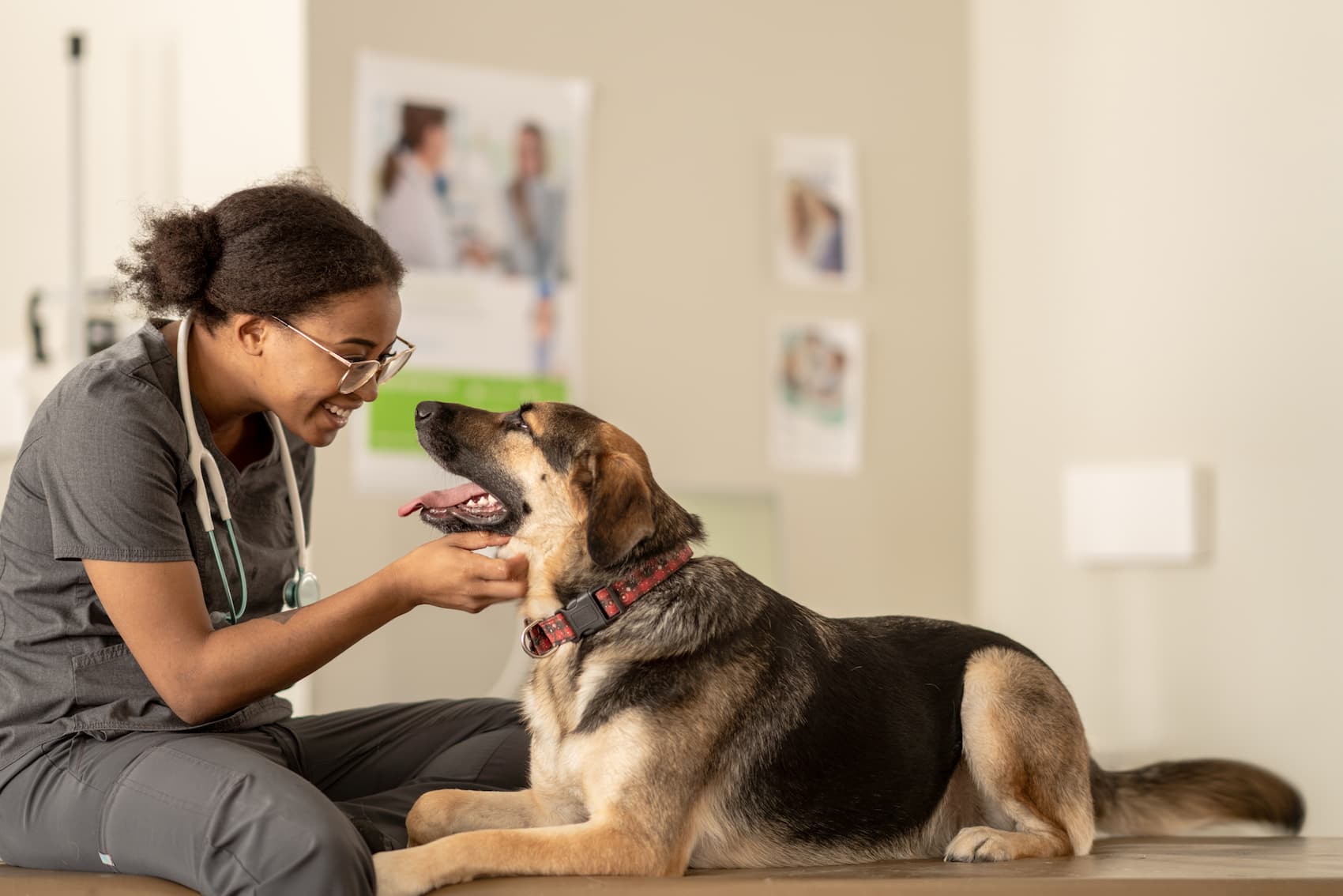
Strengthening the Veterinary Profession Through Increasing Access to Education
Veterinarians’ role in caring for animals – from our beloved pets to livestock – is critical for public health and well-being. Working with animals is rewarding, and for many veterinary students, it’s their dream job. But the industry is suffering from a significant gap of veterinary professionals and a lack of diversity. The rising costs of veterinary school often leaves students with significant debt, particularly in rural areas where student debt has outpaced wages, compounding the veterinarian workforce challenges where livestock and pets need care. The industry also has a significant lack of ethnic and racial diversity – 90% of veterinarians in the U.S. are white.
The next generation of veterinarians are faced with interconnected challenges of emerging infectious disease, climate change, and demands of a growing population. It’s vital to increase access to veterinary education and to prepare a diverse, global community of veterinary leaders with the knowledge, tools and experiences they’ll need to succeed.
To support this effort, in 2022 the Zoetis Foundation distributed over $2.5 million to organizations providing scholarships that supported over 500 students. Among these grants is one to the Wildlife Conservation Society (WCS) for a scholarship to their Veterinary Residency in Zoological Medicine and Surgery.
“This program was an amazing experience to learn about the diversity of veterinary medicine, and how human and animal health is interconnected,” says Kristine Smith, DVM, Dipl. ACZM, Medical Lead for Biologicals at Zoetis, and a WCS residency program alumna who is passionate about the connection between animal health, people and our planet.
Other scholarship programs funded by the Zoetis Foundation to help address the issue of student debt and to foster diversity in the profession include:
- A 2022 Zoetis Foundation/AAVMC Veterinary Scholarship Program grant to the American Association of Veterinary Medical Colleges (AAVMC) that provides financial scholarships to veterinary students, addresses the issue of student debt and the need to foster diversity in the veterinary profession. From 2010 to 2020, Zoetis and its legacy companies provided over $7.9 million in scholarships through this program and, in 2021, 37% of scholarship recipients were diverse. The program application opens on October 18th and will provide $7,000 individual scholarships to 263 students.
- The Foundation supports the American Veterinary Medical Foundation (AVMF) through the 2022 Zoetis Foundation/AVMF Veterinary Technician Student Scholarship Program. The AVMF grant helps offset veterinary technician training expenses as vet techs are a crucial part of animal health. Applications for the program close on October 7th and will provide $1,000 individual scholarships to up to 270 students.
- The Foundation supports students committed to working in the swine, equine, and bovine practice areas. Through a grant to the American Association of Swine Veterinarians Foundation (AASVF), the Foundation is providing funds for student seminar and poster presentations, including a $5,000 scholarship to the presentation winner. The Foundation is also providing a grant to the American Association of Equine Practitioners (AAEP)’s charitable arm, the Foundation for the Horse. The grant funds five $5,000 scholarships awarded to exceptional students dedicated to advancing equine health. Additionally, through the Zoetis Foundation’s support of the American Association of Bovine Practitioners Foundation (AABPF) scholarship program, twelve (12) $5,000 scholarships are awarded to students entering the bovine practice, offering enrichment opportunities to attract students to the bovine practice and to produce practitioners prepared to meet the needs of the 21st century.
- The Foundation is proud to advance diversity and inclusion in the veterinary profession through a grant to the National FFA Organization (FFA) to help engage underrepresented populations with agricultural education. The Foundation is also proud to provide grant support to the Farm Journal Foundation through the Veterinary Debt Solutions Program, which convenes leaders to identify solutions and implement programs to address the barriers veterinarians face in building long-term careers in rural areas and alleviate veterinary student debt burden.
“We all have to live on this planet together, and we all have to do it in a sustainable way that will keep our planet healthy for future generations and for our animals both wild and domestic,” says Dr. Smith. “When we graduate from veterinary school, we give an oath to not only preserve animal health, we give an oath to preserve public health as well.”